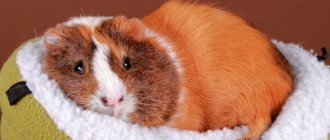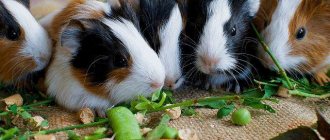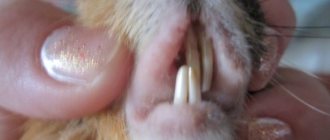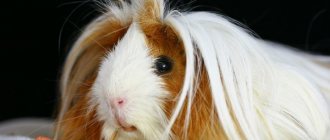When choosing a pet, you should consider care for the next few years. This is not a hobby for a few weeks. The vast majority of people keep dogs and cats at home. But some need to be constantly walked and taken outside, while others leave their fur all over the house. Lately, rodents have become increasingly popular. They do not require much care, do not leave hair and do not require walking. Often the choice is between a chinchilla and a guinea pig. Each has its own content features, pros and cons. They will be discussed in the article.
In favor of the chinchilla
Chinchillas live on average from six to ten years. Very active and friendly, they love a lot of space. They are often allowed to walk around the house. They are housed in large metal cages with a plastic tray, often homemade. The disadvantages include a nocturnal lifestyle, it is at this time that they are most active. They sleep during the day or have lethargic behavior. For this reason, the chinchilla is not suitable for everyone, since at night it is quite noisy and interferes with sleep.
Many animals do not like being alone and need a partner. Chinchillas are not like that; they can be kept alone. Although she will not refuse a partner, since she is very sociable. It will quickly become a good companion and friend for children. In general, there are advantages to supporting one person and an entire family. The behavior is very interesting to observe from the outside, especially when they play together. The male and female during the mating season is a separate issue; they constantly chase each other around the cage or sit next to each other and watch each other.
Chinchillas are distinguished by their intelligence and ingenuity; they quickly understand what’s what and how to behave. Easy to toilet train. Some individuals are very cunning; when they need something from a person, they sit in the corner and look at him. This behavior quickly bears fruit.
You need to feed your chinchilla a variety of foods: nuts, vegetables and fruits, special food, hay, and even food from our table. The animal must have access to fresh water. Since they love to swim, a special bathing suit is left in the cage once a day for an hour.
There are several main advantages of keeping a chinchilla at home:
- Easy care;
- Rare diseases;
- No unpleasant odor;
- They make contact easily with people and animals;
- Easily tamed;
- Are subject to training;
- They never bite;
- Beautiful appearance;
- They have an interesting character and are able to quickly cheer up;
- They live 6–10 years, some individuals live up to 20.
The last fact can be attributed to pros and cons at the same time. Not everyone wants to take responsibility for an animal for a third of its life.
There is one interesting character trait: they are able to be offended and show it. If you don’t take him for a usual walk or entrust the care to other people, you can see that the pet is offended. Cheerfulness disappears, often even stops taking food from hands. But it’s enough to sit next to you and apologize, and she immediately understands everything and becomes active and friendly again.
Answers to popular questions
Chinchillas are often compared to other rodents and many people simply do not see the difference between them. Are these exotics really different from their four-legged relatives and how do they get along in the same house with other animals?
Even now, the chinchilla continues to be an exotic and unusual animal. To maintain it, you need to choose the right room, ensure the temperature regime and have plenty of finances. But in return for such care, a fluffy and mustachioed pet can become a new member of your family and delight its owner with its friendly disposition.
Article on the topic: Can hamsters eat fresh peas, beans and corn?
In favor of the guinea pig
Many people prefer guinea pigs. Cheerful and kind animals that get along easily with children and adults. Care depends on the character, some individuals are completely autonomous and do not require interference in their personal life. During this time, you need to make time for others and play with them. In any case, you need to allocate funds for housing. Although the guinea pig is very calm by nature, in some circumstances it may bite, although it does not hurt. The character of a rodent is revealed; it can chew furniture and interior items. Although this situation only occurs in the absence of mineral stone, the animal simply needs to grind down its constantly growing teeth. The guinea pig is quite cautious around people.
Like the chinchilla, the guinea pig loves space and therefore requires a large cage. To save money, they often do it themselves. Inside there should be everything you need: a feeder, a drinking bowl, a house and other accessories. To avoid unnecessary odors, you need to buy and install a special toilet, which is cleaned once a day. There must be bedding. The diet needs to be varied and should include greens and solid food that can grind teeth. The pig should also eat vegetables, fruits, grains, grass, tree branches and vitamin complexes.
The guinea pig is smart and has a good memory. Able to recognize its owner and other people. She can be toilet trained and given a nickname. You need to look where the animal goes to relieve itself and place the tray there. There is a whole article about this: how to toilet train a pig. Some people give up on this cute animal because of the unpleasant smell. Not everyone understands how to train a pet and avoid odor problems.
Reviews differ regarding sociability. Some emphasize the autonomy of the pig, that it does not need a person, it just needs to be fed on time. Others at this time claim that without them she makes noise and constantly wants attention and affection. Perhaps it all depends on the upbringing and the number of individuals in one house.
Compared to a chinchilla, a guinea pig is much more susceptible to disease. It can quickly blow out in a draft; you need to watch this and choose a quiet place to place the cage. Most often, diseases affect the digestive system and respiratory tract. Vitamin deficiency can occur just as often if there is no proper nutrition. To prevent this, you need to regularly clean the cage and provide adequate nutrition. By nature, the guinea pig is very active, it is recommended to regularly take it for walks, at least around the apartment.
There are several benefits to owning a guinea pig.
Choosing a pet is a difficult decision, especially when it comes to rodents. They are all different from each other, have pros and cons, and most importantly, they ideally suit the character of one person, but are completely unsuitable for others.
Nutritional Features
For those who have decided to buy a small furry pet and want to understand how to determine the sex of a guinea pig, it would do well to find out what these animals eat. The animal's diet must be carefully balanced. It is necessary to exclude sweets, cookies and similar products from it.
To avoid obesity, the animal needs to be provided with two meals a day. Remember to strictly control portion sizes. It is advisable to leave the pet only the amount of food that he can eat within two to three hours. The basis of the animal’s diet should be vegetables, fruits, root vegetables and hay. It is recommended to completely exclude sweets and meat products from the guinea pig's menu. It is useful to give her fresh grass, zucchini, cucumbers, cabbage leaves, beets, carrots, potatoes and brown bread.
It is important to provide your pet with free access to clean drinking water.
Chinchilla or guinea pig
The increasing popularity of various types of rodents is associated with greater ease of care and the lack of necessary walks. Fans of chinchillas and guinea pigs will provide many arguments in favor of each species.
Chinchilla is a cute animal, but expensive to keep
Chinchilla has the following advantages:
- cute and funny appearance, beautiful fur;
- lives up to 10 years;
- friendly and active;
- her hectic life begins in the evening, just as the owners have time to finish all their business;
- can live alone or as a couple;
- rarely susceptible to disease;
- extremely rarely shows aggression;
- perfectly amenable to training;
- does not have its own negative odor;
- makes an excellent companion for both the elderly and children.
However, caring for them requires a high-quality and varied diet and numerous cage equipment, including drinking bowls and baths.
Guinea pigs are also universal pets, however, their naturally timid nature requires owners to spend time getting used to them in the first few days. They are smarter than many rodents and easily remember their beloved and main owner. They know their nickname and are capable of following commands.
A guinea pig, unlike a chinchilla, is better suited to human hands
They also need a specially equipped home, but have a hard time getting used to a specific “toilet” place. This factor can... The difference between chinchillas and “overseas” rodents is that the latter are susceptible to various diseases.
Pros of pigs:
- ease of care;
- good nature and affection;
- tendency to sleep at night;
- interesting due to a variety of sounds;
- react positively to tactile communication with a person.
Who is better
To decide who is more suitable for purchasing, a guinea pig or a chinchilla, you need to consider separately all the advantages and disadvantages of each animal separately. Everyone decides for themselves which animal to buy. Both options are suitable for the role of a pet for children. But you don’t have to choose. These rodents are great friends, so they can live under the same roof without any problems.
If you still can't decide between the two options, try adopting both pets. You need to know that a chinchilla and a guinea pig cannot live in the same house. But two pets at once will become a pleasant holiday in your free time, bringing the owner even more happiness.
Sources:
https://animallittle.ru/stoit-li-zavodit-shinshillu.html https://msvinkam.ru/vybor/kto-luchshe-shinshilla-ili-morskaya-svinka.html https://homjakam.ru/morskaya- svinka/vybor-i-pokupka/shinshilla-ili-morskaya-svinka
Which pet is right for a child?
When trying to understand who is better, a chinchilla or a guinea pig, you need to decide on the purposes for which the pet is purchased. If this is the child’s first pet, then the best choice will still be the “eared dog” - a healthy body and long life will allow you to avoid severe psychological trauma from the loss of a pet
However, if a child needs the equivalent of a kitten that will happily sit on his lap, then it is better to have a pig at home that loves to communicate with the owner.
A guinea pig is more suitable for a child than a chinchilla
But if you still can’t decide who to choose, then you can take both. It is necessary to understand that a chinchilla and a guinea pig will not live together in the same cage, but several pets will take up excess free time or bring double joy to the owners.
Who is better: a chinchilla or a guinea pig?
5 (100%) 1 vote
Age
You should know at what age it is better to buy a guinea pig: 5-10 weeks. Up to three weeks of age, the cubs feed on their mother's milk. It makes up the bulk of their diet and strengthens the immune system. The older an individual is, the longer it takes to adapt to a new home.
It is possible to determine the exact age of the animal only before it reaches one year of age. During this period, the animal continuously grows and gains weight. The body length at 5 weeks is about 19 cm. The average length of an adult is 25–30 cm, weight is 1 kg. In addition, the teeth of young animals are white and even (in the absence of dental problems). After reaching 1 year, the appearance of the animal practically does not change. All you have to do is take the seller’s word for it or find out the age from the veterinarian.
If you want to have a female guinea pig, you should be especially careful. Animals reach sexual maturity by two months, and cases of acquiring pregnant females are not uncommon.
Rodents are a delicate matter
Every year the list of pet rodents expands, and this is great - you can find your one and only. You like active and funny babies, and to have a lot of them means gerbils. Peaceful, cute and with wonderful fur that is a pleasure to pet - a guinea pig, chinchilla or rabbit will suit you. You are drawn to intellectual communication and frequent tactile contact - take a rat. They are attracted to larger animals with pronounced play and hunting instincts, similar to cats - pay attention to ferrets. If you want a squirrel, but don’t have enough space, get a degu rat with the same upturned tail.
Each type of rodent has its own character, degree of mobility and contact. Dimensions and weight. The colors and type of fur are what many people react to when purchasing. I would like the owners to also seriously take into account the peculiarities of keeping and feeding. For hamster, for chinchillas
and every other type of rodent is provided with its own food, cages, toys and accessories.
The lifespan of most of the most popular rodents - hamsters, rats and mice - is quite short. They live up to three years, and it will be very sad if, due to errors in feeding, the baby does not even have time to grow up. Larger pigs and chinchillas are considered long-lived, however, provided that the food for chinchillas
the owner carefully selects and monitors the health of the animal.
Some rodents, especially mice, are extremely social and only do well in large company. But under no circumstances should hamsters, even a pair of opposite sexes, be housed in the same house. Zealous individualists must have their own personal territory, otherwise there will be serious bites. Many species are kept alone without any problems and get along well in pairs.
Where is the best place to buy
This dilemma often comes up for future pet owners. The cheapest way to buy a guinea pig is to buy from a giveaway announcement. In this way, people try to give away unplanned offspring or, under the pressure of some circumstances, to place their pet.
It is more convenient to buy a piglet at a pet store, because in addition to the pet itself, you can immediately purchase everything necessary for its maintenance - a cage, food, dishes, bedding, etc. This is probably where all the advantages end. The likelihood that you will get a healthy animal of the desired gender and age there is low.
Did you know? Initially, pigs in Russia were called “overseas”, because they were brought into the country
"
from across the sea
"
. Over time, the prefix “for” disappeared, and the animals became “sea”, while they are reluctant to even take rare baths.
Sellers in pet stores often cannot provide complete, qualified information about guinea pigs, because they know a little of everything about all animals. Therefore, you may not receive complete information about the conditions, features and requirements for their content there.
This is especially important for people who decide to acquire such an animal for the first time. You may also be given incorrect information about the breed.
Often, under the guise of an animal of one breed, they may sell you another or a mixture.
Sometimes such incidents occur as invisible, at first glance, injuries that are inflicted on the pig by other, larger animals if they are kept together.
Did you know? Guinea pigs, unlike other rodents, are able to distinguish between yellow, green, red and blue.
Animals from such sellers are often kept in poor conditions and poorly fed, which seriously undermines their health and leads to death. Therefore, the low price in this case is associated with a whole string of risks. If in the future you want to take part in exhibitions, you need to buy animals from professional breeders.
Find out also how much guinea pigs cost.
The house we live in
It is impossible to properly arrange a home for a rodent without special knowledge. It is not always enough to set yourself the task of buying a cage
. Sometimes an aquarium (terrarium) or a display case is preferable. A house is also absolutely necessary. It is important to guess the sizes. For example, even the most spacious cage for squirrels will be small; they require an enclosure for constant vigorous activity. A chinchilla cage is taller than a rabbit cage. Ferrets do not need a large cage; they walk a lot “by themselves.”
When getting a hamster at the request of a child, owners often care about only one thing: a cage for the hamster
was inexpensive and reliable. Where will she stand? All domestic rodents are delicate babies and suffer from drafts, which large people do not pay attention to. You can't put the cage on the floor, because it's cooler there. It is better to immediately purchase a special stand.
What to put on the bottom of the cage? And at this point our cute rodents show great diversity. Some people like to dig, while others like to scatter the covering. Ferrets spend little time in cages, but they must have a litter tray next to the house. Cat litter is quite suitable for them. And here is a filler for a hamster
It’s better to buy a special one; you shouldn’t use newspapers or just paper.
Don't forget, smell is the main problem of keeping a rodent in an apartment. The branded filler does not have to be changed daily. Chinchillas can be toilet trained, but bedding is still required. This amazing animal does not smell, but excrement will indicate the presence of a rodent in the house, so it is better to purchase chinchilla litter
. And immediately - special sand for swimming.
As you can see, each rodent has its own approach. And feeding is a whole science. It would seem that a rat is a rat. But it turns out that the wire-haired degu and the white rat need to be fed differently. Information about the nutrition of rodents gleaned from children's cartoons does not correspond to reality. It will be easier to buy food for your hamster
industrial production in a pet store, on the recommendation of renowned hamster breeders. Let the hamster live a little longer.
CHOOSE YOURSELF) A chinchilla’s character manifests itself, perhaps, immediately after its birth. You can watch newborn chinchillas, watch how they behave with their brothers and sisters and see that they are all different. Some are more active and persistent, while others are calm. Some people love to sit in their arms and will happily doze off in the palm of their owner’s hand, while others will be curious to explore the environment around them. Kids grow up, and new features appear in their character, but, in general, he remains the same as he was in childhood. You can try to tame a chinchilla, educate it, but in any case you need to take into account the peculiarities of its character. This is the only way to achieve mutual understanding. If you treat the chinchilla as an individual, let her know that you respect her opinion and her desires, then she will answer you in kind. Chinchillas do not tolerate any kind of violence against themselves. If they want to play with you now, they will play, if not, you will not be able to force it, any violence against the chinchilla will result in the animal simply not wanting to communicate with you or, in extreme cases, the chinchilla begins to bite. Chinchillas know how to take offense. For example, you didn’t let him go for a walk or you just went on a business trip for a day and left your pet with your family, you come back and see that the little dog was offended. The animal will not run to meet you when you open the cage; it will proudly refuse to take the treat from your hands. But you just have to talk to him, ask for forgiveness for your inattention and that’s it, he will happily start communicating with you again. Chinchillas are very cunning and intelligent. They quickly understand what's what and learn everything quickly. For example, teaching a chinchilla to go to the litter box is as easy as shelling pears. It is enough to simply remove all the bedding and place a tray with wood filling in the cage; the animal will immediately understand why this is needed and will begin to use it for its intended purpose. Chinchillas are manipulators. With a chinchilla as with a child, they feel and understand everything very well. Very soon the animal knows exactly what to do and what needs to be done to get what it wants from its owner. Someone sadly sits in a corner and looks with pitiful eyes in order to get a tasty treat. Some people, on the contrary, show sociability and activity, knowing that if they stand or jump near the bars on their hind legs, the owner, touched, will give them a treat or let them go for a walk. It is worth noting that chinchillas are absolutely not evil, but very kind and affectionate animals. A chinchilla only bites if it is in a desperate situation or you are not taking good care of it and it is very afraid of you. Guinea pigs are sociable animals and thrive best in company. Keeping more of these small, cute rodents provides an opportunity to become familiar with their behavior in a herd, and allows you to observe the varied personalities that can only emerge when the pig feels safe in the environment of its relatives. For a singular pig, the only friend can be a person, and he is obliged to pay her quite a lot of attention so that she does not feel lonely.
Guinea pigs learn quickly and are ideal pets for children. The pig does not bite and does not fight with the enemy. To unfamiliar surroundings, smells, sounds - everything that seems unsafe to her - she reacts with panicked flight or absolute immobility. Under natural conditions, this behavior often saves the lives of these rodents. These gentle animals show aggression exclusively towards individuals of their own species. It can be found between pigs competing for food or resting place.
Hamster
Hamsters are very popular pet rodents. But it is worth keeping in mind that this small and cute animal is a nocturnal animal and, moreover, quite aggressive. During the day, the hamster will sleep soundly and will not want to play with you. And if you decide to add a relative to it, then violent showdowns, up to the death of one of the animals, will be ensured.
The hamster will need a durable one made of wire, equipped with a house, a wheel, and tunnels of your choice. If you want to let your pet run around the apartment, then use a walking ball, otherwise the hamster may climb into a hard-to-reach place, chew wiring or other things.
This domestic rodent is not very picky when it comes to food. The main thing is to adhere to some rules. You can find out what to feed your hamster.
The hamster eats little, takes up little space, and requires minimal attention. This pet rodent will do great alone in its cage. The main thing is not to forget to feed him and change his water on time. The only drawback of these animals is their short life expectancy, on average 2-3 years.
The most common representatives of hamsters are the dwarf hamster and the Syrian hamster; read about how these species differ.
Comments
there were hamsters, rats and pigs. Hamsters are stupid, smelly and biting. rats are very smart, you can teach some commands, we had a kind of dog, guinea pigs are the most good-natured, affectionate and not smelly, I would choose a pig for children.
I had a hamster. There is one problem with them - they live very little. There is almost no smell if you clean the cage in time. my only tame animal. He was very smart, he walked with his hands.
then there were rats. These ones stank despite regular cleaning. communicated exclusively with each other. Maybe if I took one, I could tame it.
then I took the degu. interesting little animals. They turned out to be different genders (although I took like 2 boys). they brought children. Now there is only one girl left. “The second term is winding down.” They have been living for 5 years, and ours is already in its 7th year. Our degu is not tame. craves communication only when the food in the bowl runs out. There is almost no smell if you clean it in time. We have general cleaning once a week. In between, I sweep and wipe the shelves.
For children I would take a chinchilla. You can even pick her up without fear and strangle her. minus - she needs special conditions of detention. Ideally, a display cage. We have a squirrel living in a homemade one. a friend did. the structure is the size of a refrigerator.
My son and I also got snails. he really had enough interest in them for 2 days. completely unpretentious creatures. In our family it's more of a joke. poured food for them. an hour later, one snail was already having dinner, and the other was still “hurrying” to the feeder.
I read the reviews and decided to take a pig; they are much more sociable, active during the day and not at night and do not spray urine like chinchillas and stink less than hamsters
Well, yes. If I were you, I'd take the pig too. I just haven’t had pigs, so I can’t say from experience.
Source











